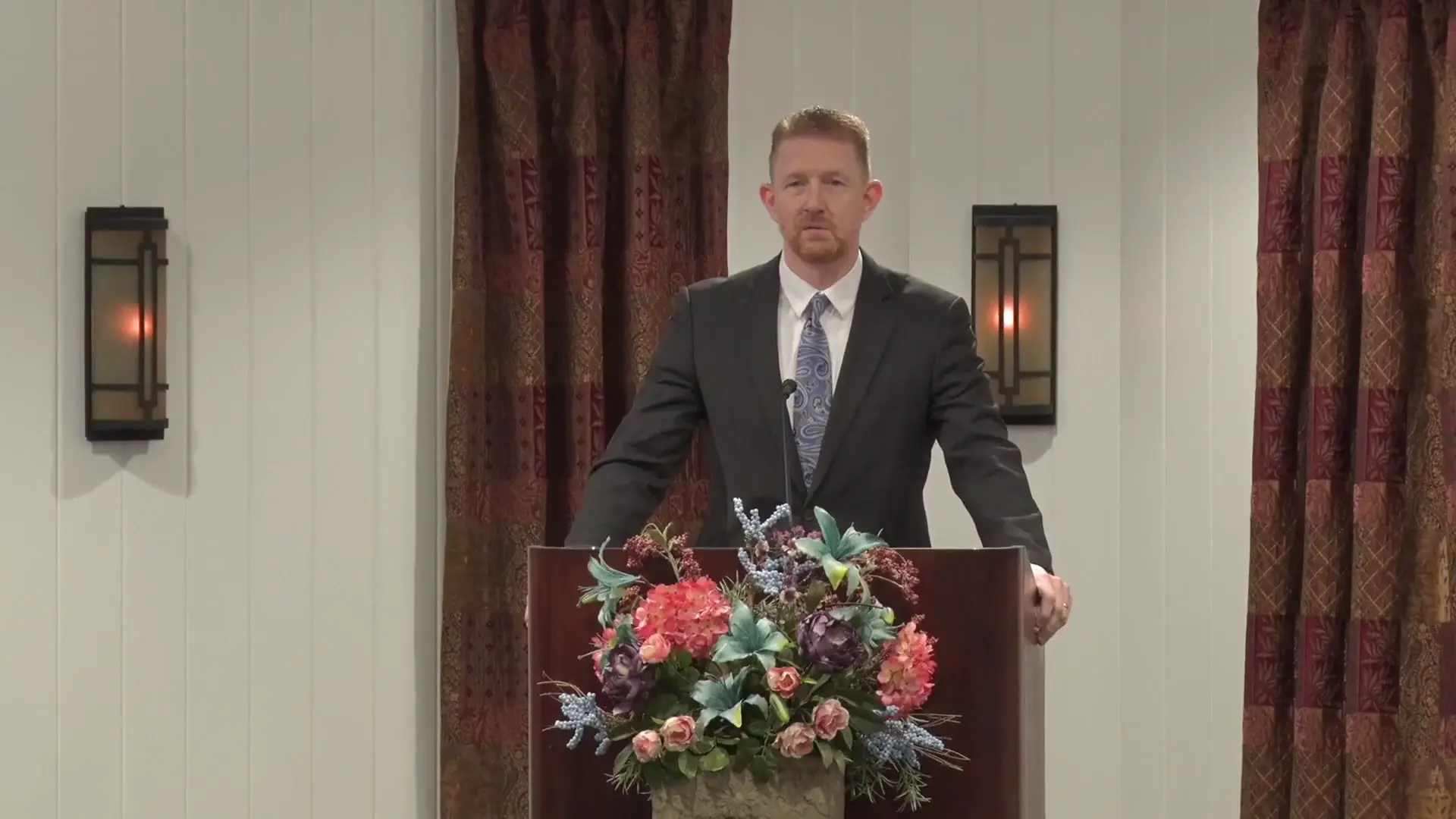Filter by Categories
God's Rest and the Millennium
Feast of Tabernacles Sermon by Richard T. RitenbaughThe Greek word *sabbatismos* (G4520), as used in Hebrews 4:9, signifies a cessation or stoppage for the people of God, linking the weekly Sabbath with the future rest of God during the thousand-year reign of Christ. This term, derived from the Hebrew *shab'bat* meaning to stop or cease, was adapted into Greek by Paul, transforming it from a verb to a noun to emphasize a period of cessation. It characterizes God's rest as a time when certain activities cease, mirroring the weekly Sabbath where one stops personal labors, but it also implies the beginning of godly activities. Just as God ceased physical creation on the seventh day yet continued spiritual work, the millennial rest involves shifting focus from ungodly, carnal pursuits to godly endeavors. This rest is not merely relaxation but a transformative period aimed at the conversion of humanity, redirecting efforts toward divine purposes with a goal of eternal love toward God and fellow man.
The Sabbath: Rest
Feast of Tabernacles Sermon by Richard T. RitenbaughThe Greek word *sabbatismos* (G4520), as found in Hebrews 4:9, conveys a profound concept of rest for the people of God, indicating that a true Sabbath-keeping remains in the future. This term links the weekly Sabbath with the ultimate rest promised in the Kingdom of God, characterizing this future rest as a time of cessation from human activities, mirroring the cessation observed on the weekly Sabbath, and a shift toward engaging in godly works. *Sabbatismos* suggests that the goal of the Millennial period is to redirect humanity's focus from carnal, rebellious activities to positive, eternal works rooted in love for God and fellow man. This rest begins with the conversion of humanity, enabling true peace and repose only when universal righteousness is achieved and all unrighteousness ceases. Furthermore, *sabbatismos* implies an ongoing obligation to keep the Sabbath, as it aids in building a relationship with God and prepares His people to enter His ultimate rest through diligent study of His Word and bold prayer, fostering faith and Christ-like character.
Psalms: Book Four (Part Two)
Feast of Tabernacles Sermon by Richard T. RitenbaughIn Hebrews 4:9, the author clearly states that there remains a Sabbath rest, a *sabbatismos* (G4520), for the people of God. This term emphasizes a specific kind of rest tied to the Sabbath, underscoring the importance of ceasing from regular labor as commanded. The significance of *sabbatismos* lies in its indication of a future fulfillment, a time still ahead when God's people will fully enter into His rest. This rest is not merely about physical cessation but points to a deeper spiritual reality, where the focus shifts from personal endeavors to aligning with God's purposes. The concept of *sabbatismos* reinforces the call to obey God's command to keep the seventh day holy, reflecting His own example of resting after creation. It serves as a reminder that entering this rest requires diligence and faithfulness, ensuring that God's people are not merely imitating but truly embodying His way.
The 'Rest' of Hebrews 4
Feast of Tabernacles Sermon by John W. RitenbaughIf we patiently endure, trusting in God's faithfulness to bring us to completion, there will be a time when we will attain the rest we desperately yearn for.
Imagining the Garden of Eden (Part Eight)
Sermon by Richard T. RitenbaughThe Garden of Eden was the perfect place for mankind to get its start, a place where Adam and Eve could become acquainted with God and developed godliness.
The Fourth Commandment (Part 4)
Sermon by John W. RitenbaughFocusing on material and temporal things undermines faith. The Sabbath is holy time, created for building faith, energizing our minds for fellowship with God.
Hebrews (Part Five)
Sermon/Bible Study by John W. RitenbaughThe ancient Israelites resisted the gospel, refusing to mix it with actual obedience. What they heard never became a part of their lives; Egypt never left them.
Beating the Rat Race (Part Six)
CGG Weekly by Richard T. RitenbaughOnly when we are still can we truly concentrate on knowing God. When our lives are upside-down, confusion and chaos reign, making spiritual growth difficult.
The Commandments (Part Eight)
Sermon/Bible Study by John W. RitenbaughIn our hectic culture, we commit far too little time to God, depriving ourselves of the Holy Spirit and attenuating the faith required to draw close to God.

What Do We Do at the End of an Age?
Sermon by David C. GrabbeWe are living at the end of a collapsing political, economic and cultural age. The greatest danger for God's people in such times is not the upheaval itself, but instead spiritual drift, neglect, and hardening of the heart. Drawing heavily from the book of Hebrews, we learn that salvation is not merely a past event, but an ongoing relationship and participation in a covenant that can be neglected, but with horrible serious consequences, such as Israel, Zedekiah, and even Elijah experienced as Elijah experienced loss through unbelief and misaligned priorities. We, as God's called-out saints, must avoid distraction in lesser things, such as national crises, work, media, or normalized immorality, all of which can produced "spiritual sclerosis," making us insensitive to God's voice. Hebrews repeatedly emphasizes urgency: "today" we must refocus on Christ's supremacy, nurturing faith through obedience, study of God's word, faithful Sabbath observance, serving as a safeguard against hardening. In this unstable world, the only solution is to decisively prioritize our relationship with God above all else, because that relationship exclusively is salvation and the only secure footing at the end of an age.